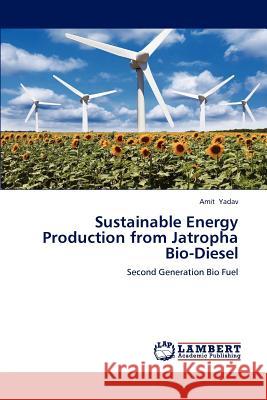Sustainable Energy Production from Jatropha Bio-Diesel » książka
Sustainable Energy Production from Jatropha Bio-Diesel
ISBN-13: 9783659232855 / Angielski / Miękka / 2012 / 56 str.
The demand for petroleum has risen rapidly due to increasing industrialization and modernization of the world. This economic development has led to a huge demand for energy, where the major part of that energy is derived from fossil sources such as petroleum, coal and natural gas. Continued use of petroleum sourced fuels is now widely recognized as unsustainable because of depleting supplies.There is a growing interest in using Jatropha curcas L. oil as the feedstock for bio-diesel production because it is non-edible and thus does not compromise the edible oils, which are mainly used for food consumption. Further, J. curcas L. seed has a high content of free fatty acids that is converted in to biodiesel by transesterification.The bio-diesel produced has similar properties to that of petroleum-based diesel. Biodiesel fuel has better properties than petrodiesel fuel; it is renewable, biodegradable, non-toxic, and essentially free of sulfur and aromatics. Biodiesel seems to be a realistic fuel for future. Biodiesel has the potential to economically, socially, and environmentally benefit communities as well as countries, and to contribute toward their sustainable development











